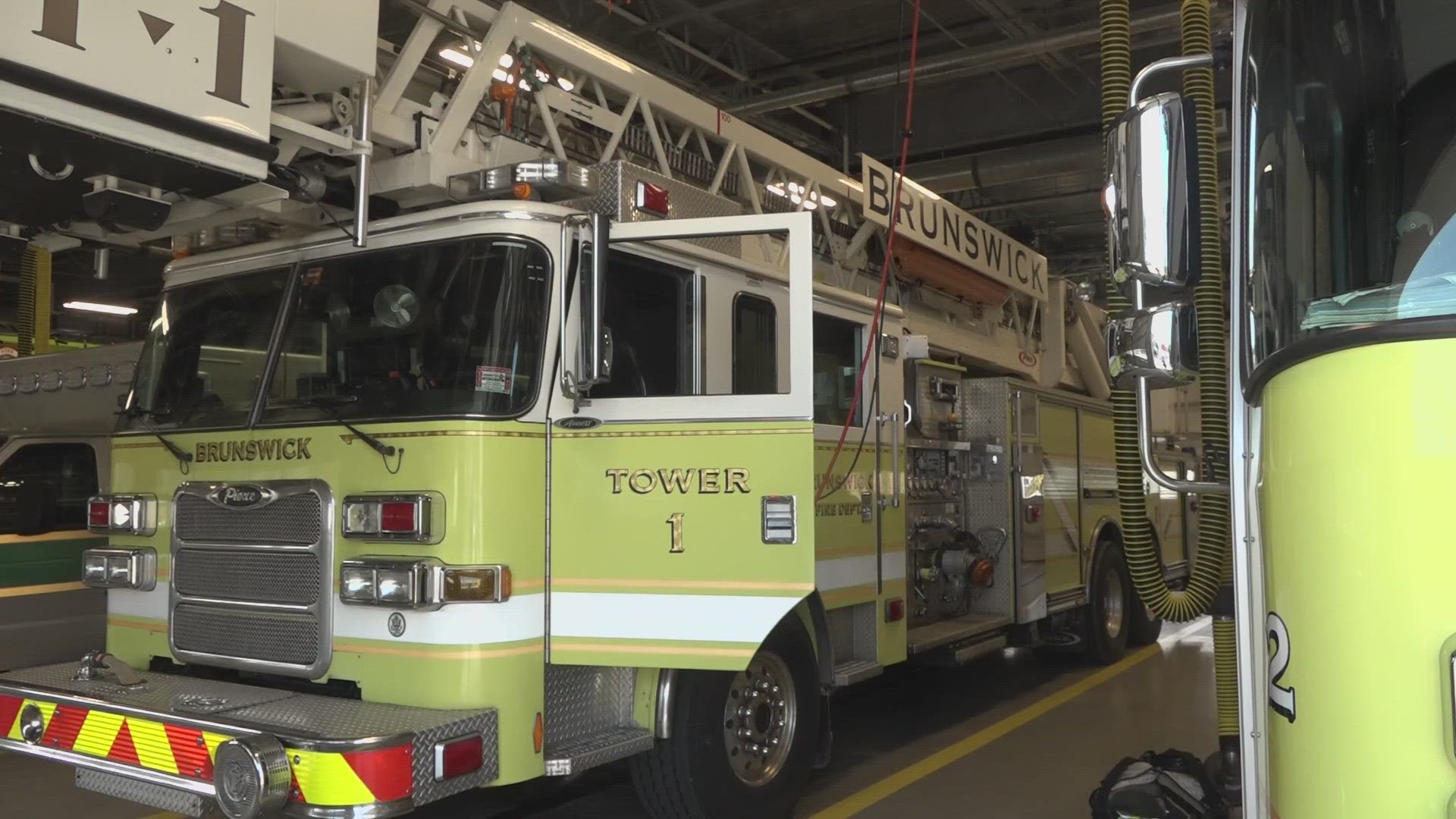BRUNSWICK, Maine — In a concerning industry trend, the demand for firefighters is soaring, and the situation is not much different in Maine.
The critical role of firefighters in responding to emergencies and safeguarding communities has led to a nationwide quest for both full-time workers and volunteers to fill the ranks.
The shortage of these brave individuals is threatening the safety of our towns and cities.
Brunswick is experiencing a shortage of firefighters, and it is not just a minor hiccup.
The Brunswick Fire Department is currently seeking to hire eight additional firefighters, which is equivalent to an entire shift's worth.
"To address the shortage, we have been meeting with the union to see what we can do about work rules and that type of thing, and just shift overages," Brunswick Town Manager John said.
Becoming a firefighter is tough. Prospective firefighters must undergo nearly 600 hours of training before they can step into this crucial role, 240 hours from the fire department training program, and 200 to 300 hours to receive their EMT license.
This training not only demands dedication but also a significant time commitment from those who wish to serve their community.
"We already had a small applicant pool, and now it's even smaller since we are all vying for the same people," Brunswick Fire Chief Ken Brillant said.
The firefighter shortage is not limited to Brunswick. It's a crisis that extends beyond.
Westbrook is grappling with the same challenge.
"We do experience a lot of firefighters that do have second or third jobs because of how the schedule works," Westbrook Fire Chief Steve Sloan told NEWS CENTER Maine.
Firefighters typically work two 24-hour shifts a week and many have ended up putting in overtime to respond to the growing number of emergency calls.
In Westbrook, calls have surged by a staggering 35 percent, rendering the current staffing levels unsustainable.
"Calls are blowing up, and being able to meet those needs without increasing wait time when you call an ambulance is to increase staff. ... We have to figure out where the best place to get that staff is," Sloan explained.
In the face of this challenging situation, fire chiefs are turning their gaze toward the younger generation to secure the future of our fire stations.
They are exploring innovative approaches, including offering courses to high school students.
By inspiring and educating youth, they aim to create a pipeline of dedicated individuals ready to step up and protect our communities.

